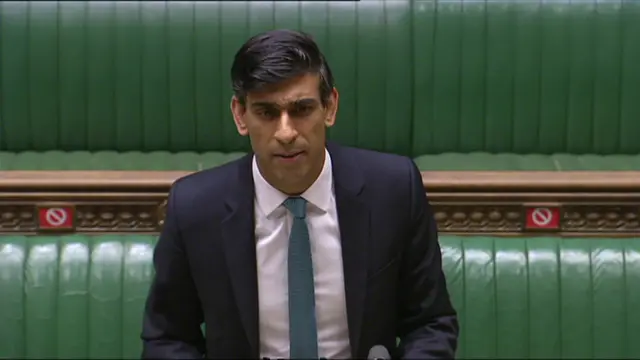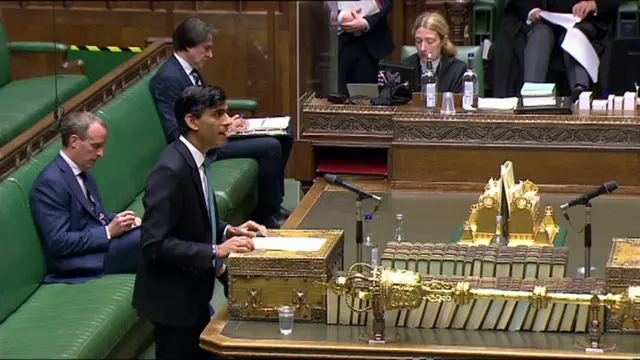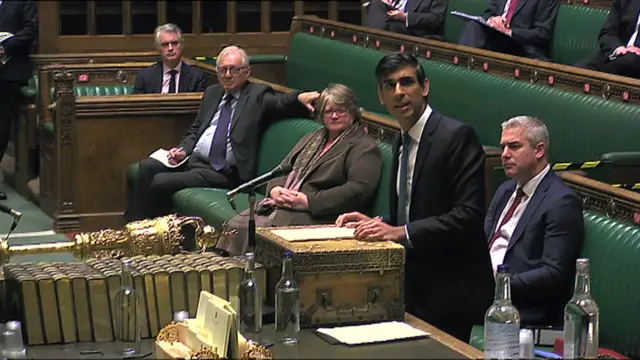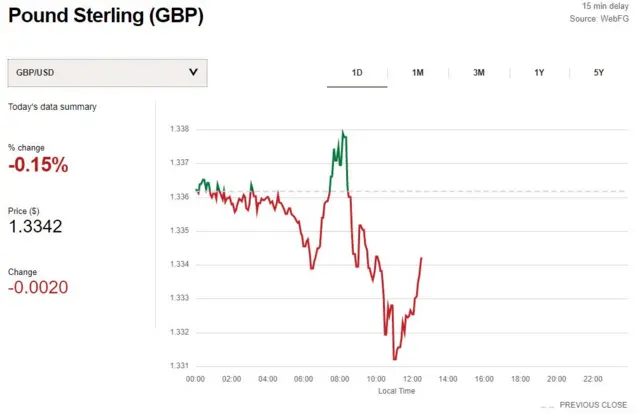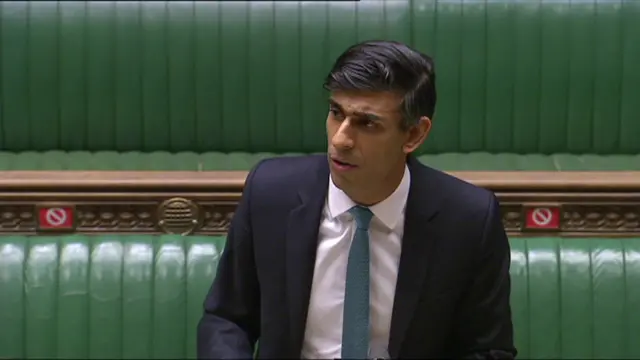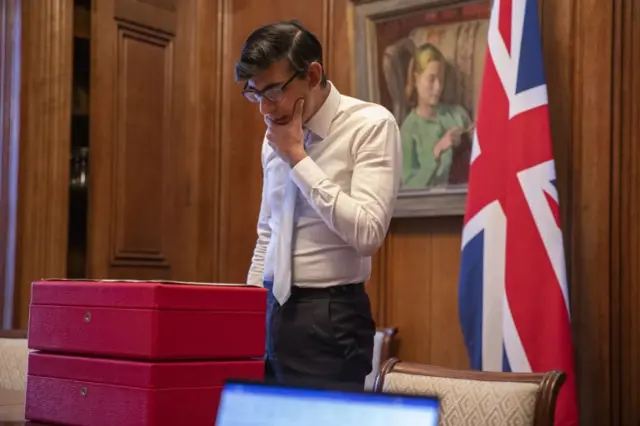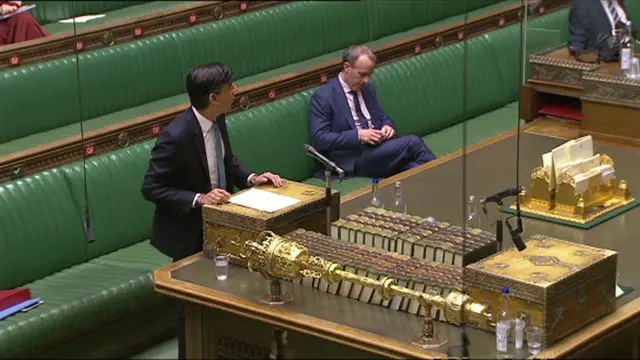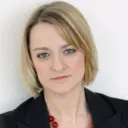New £4bn levelling up fundpublished at 13:11 GMT 25 November 2020
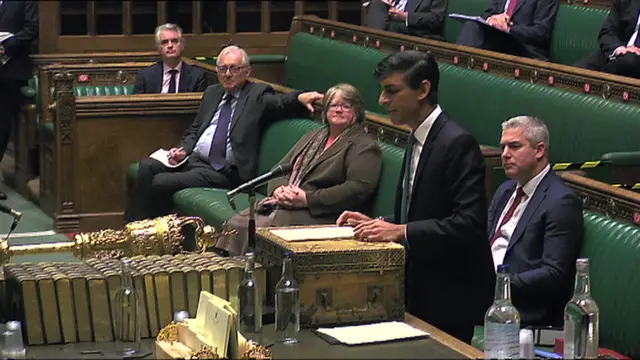 Image source, HoC
Image source, HoCMr Sunak says he has one final announcement.
He says the "most powerful barometer of economic success is the change people see and the pride they feel in the places they call home".
As a result, he announces a new "levelling up fund" worth £4bn.
The chancellor says any local area will be able to bid directly to fund local projects - but they must be delivered within this Parliament "and they must command local support".
They could include a new bypass, upgraded railway stations, less traffic or more libraries, museums, and galleries.
"This government is funding the things people want and places need," he says.

